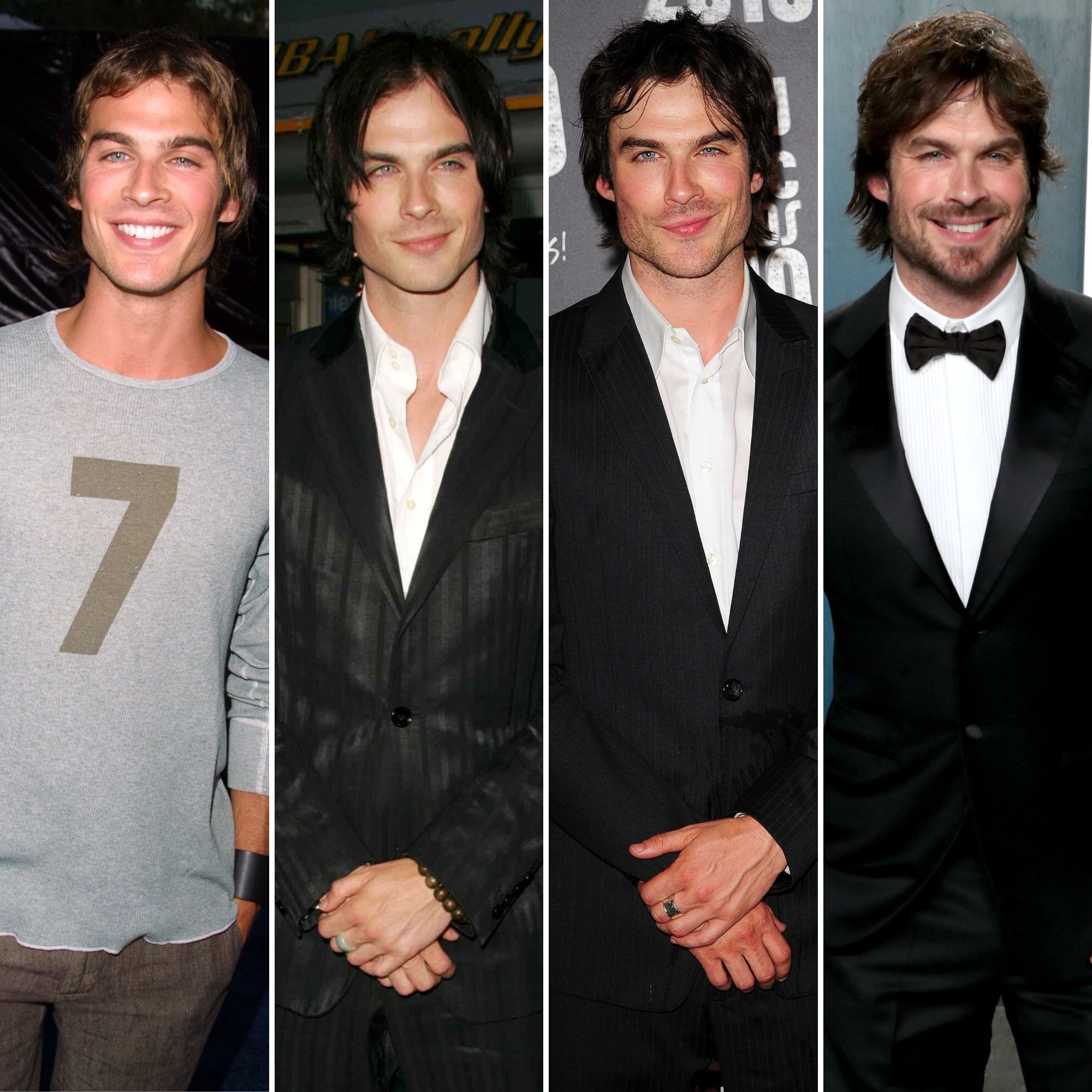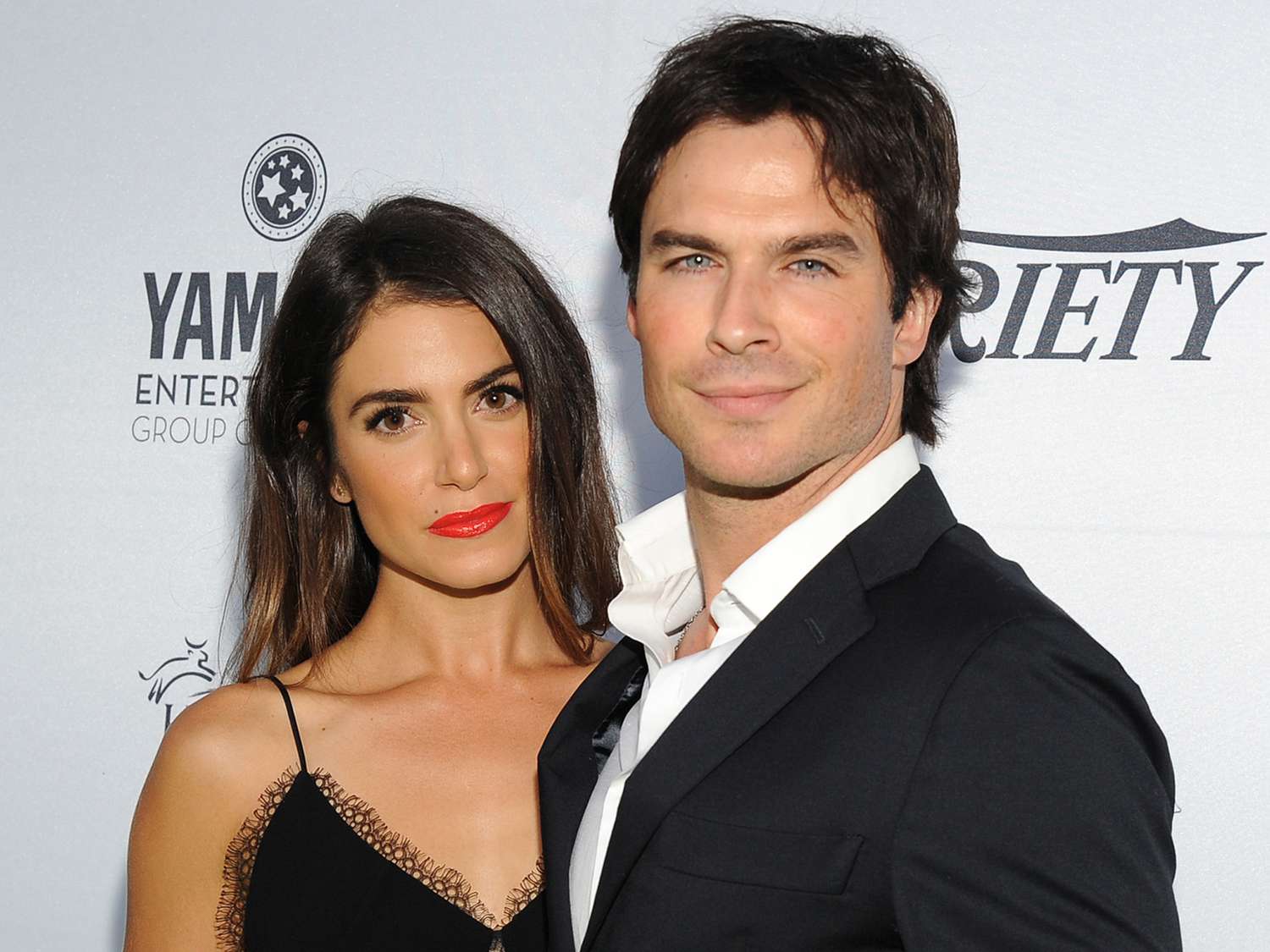It’s quite something, isn't it, to think about the early days of a truly great performer? We often see our favorite actors in their most iconic roles, already established, already legends. But what about before all that? What about the formative years, the initial steps onto the stage, the very first moments of a career that would one day capture hearts across the globe?
For someone like Ian McKellen, whose face and voice are so familiar from grand productions like "The Lord of the Rings" and "X-Men," it’s easy to forget that he too was once a hopeful, ambitious young person. He had dreams, and he had to work his way up, just like anyone else. So, it makes you wonder, what was he like when he was just starting out?
This article aims to peel back the curtain a little, offering a glimpse into the life and times of Ian McKellen when he was young. We’ll explore his early influences, his schooling, and those crucial first acting opportunities that helped shape the extraordinary talent we all admire today. It’s a fascinating look at the foundations of a remarkable artistic journey, honestly.
- Vincent Donofrio Net Worth
- Todd Tucker Net Worth
- Net Worth Of Sally Field
- Georgina Chapman Net Worth
- John J Mack
Table of Contents
- Early Life and Beginnings
- The Formative Years: Education and Early Stage Work
- Building a Reputation: Theatre and Television
- Breaking Through: Notable Early Roles
- A Look at His Craft: Young Ian McKellen's Acting Style
- Legacy and Influence: From Young Talent to Global Icon
- Frequently Asked Questions About Young Ian McKellen
Early Life and Beginnings
Ian Murray McKellen entered the world on May 25, 1939, in Burnley, Lancashire, England. He was born just before the start of the Second World War, a period that, in a way, shaped his early childhood quite a bit. His family moved to Wigan when he was still very little, and then later to Bolton, which is where he spent a good portion of his growing-up years. His father, Denis Murray McKellen, was a civil engineer, and his mother, Margery Lois Sutcliffe, managed the home. They were, you know, a fairly typical English family of the time.
From a very early age, Ian showed a natural interest in the performing arts. This wasn't something that just appeared out of nowhere; his parents were actually quite supportive of cultural activities. They would often take him to the local theatre, which, as a matter of fact, was a huge influence on him. These early visits to see plays and pantomimes really sparked something inside the young boy. It was there, watching the actors on stage, that a seed was planted, suggesting a path he might one day take. He was, apparently, quite captivated by the magic of it all.
His family life, though generally happy, also had its moments of sadness. His mother passed away when he was only 12, and his father when he was 24. These experiences, while tough, certainly contributed to his character and, in some respects, his depth as a person. He often speaks about how his upbringing, with its mix of ordinary life and exposure to the arts, set the stage for his future endeavors. It's almost as if destiny was calling him to the stage, even then.
Personal Details and Bio Data
| Detail | Information |
|---|---|
| Full Name | Ian Murray McKellen |
| Birth Date | May 25, 1939 |
| Birthplace | Burnley, Lancashire, England |
| Education | Bolton School, St Catharine's College, Cambridge |
| Acting Debut (Stage) | 1961, Belgrade Theatre, Coventry (as Squire Sullen in "A Scent of Flowers") |
| Acting Debut (Film) | 1969, "A Touch of Love" (as George Matthews) |
The Formative Years: Education and Early Stage Work
Ian McKellen's formal education played a crucial role in nurturing his acting aspirations. He attended Bolton School, a place where his passion for drama truly began to blossom. He was, you know, a very active participant in school plays, taking on various roles and getting a feel for performing in front of an audience. These early experiences weren't just about learning lines; they were about discovering the joy of storytelling and the connection with people watching. He actually found a real sense of belonging within the school's drama community.
Following his time at Bolton School, Ian went on to St Catharine's College, Cambridge, in 1958. This was a significant step, as Cambridge had a vibrant and competitive university theatre scene. It was here that he truly immersed himself in acting, participating in an astonishing number of productions. He performed in plays directed by fellow students who would also go on to become notable figures in the arts. This period was, in a way, a masterclass in practical theatre, allowing him to experiment with different characters and styles.
During his Cambridge years, Ian was part of the Marlowe Society, a prestigious student drama group. He appeared in plays alongside other talented individuals, some of whom would also achieve great fame. This environment provided him with invaluable experience, refining his stage presence and vocal abilities. He was, by all accounts, a dedicated and enthusiastic performer, always eager to learn and improve. It was, you know, a time of intense growth and exploration for him as a budding actor.
Upon leaving Cambridge in 1961, Ian McKellen immediately launched into a professional acting career. His first professional appearance was at the Belgrade Theatre in Coventry, where he played Squire Sullen in "A Scent of Flowers." This was a pivotal moment, marking his transition from amateur to professional performer. He then joined the repertory theatre circuit, which was a common path for young actors in Britain at the time. This meant performing in a variety of plays, often with very little rehearsal time, which really sharpened his skills and versatility.
Working in repertory theatre was, frankly, a rigorous training ground. He would perform in one play while rehearsing for the next, sometimes taking on multiple roles in quick succession. This intense schedule built up his stamina, taught him quick learning, and exposed him to a vast range of dramatic literature. It was, in some respects, the perfect preparation for the long and varied career that lay ahead. He was, basically, honing his craft day in and day out, developing the robust skills that would make him a master of the stage.
Building a Reputation: Theatre and Television
By the mid-1960s, Ian McKellen was steadily making a name for himself in British theatre. His talent was undeniable, and he quickly moved from regional repertory companies to more prominent stages in London. He joined the National Theatre Company in 1965, a significant achievement for a young actor. Working under the legendary Laurence Olivier, he gained exposure to the highest standards of theatrical performance. This was, you know, a truly exciting time for him, being surrounded by such incredible talent.
His work with the National Theatre and later with the Royal Shakespeare Company (RSC) cemented his reputation as a serious and gifted classical actor. He took on challenging roles in Shakespearean plays, which, arguably, became a hallmark of his career. His performances were often praised for their intelligence, emotional depth, and clarity of delivery. He had a way of making complex characters feel very human and relatable, even in the grand settings of classical drama. This period was, basically, where he truly established himself as a force on the stage.
While theatre remained his primary focus, Ian McKellen also began to explore opportunities in television during his younger years. His first television appearance was in 1964, and he continued to take on various roles in BBC productions. These television parts, though perhaps not as widely remembered as his later film work, allowed him to reach a broader audience and gain experience with a different medium. It was, in a way, a chance to adapt his powerful stage presence for the more intimate demands of the small screen.
These television roles were, you know, an important part of his artistic development. They taught him about camera angles, subtle expressions, and the nuances of acting for a close-up. He was, more or less, learning to fine-tune his performance for different platforms, a skill that would serve him incredibly well in the decades to come. His dedication to both stage and screen, even in his youth, showed a remarkable commitment to his craft. He was, truly, a performer always seeking new challenges.
Breaking Through: Notable Early Roles
While it might be hard to pinpoint a single "breakthrough" moment for someone with such a long and gradual rise, certain early roles definitely helped elevate Ian McKellen's profile. His performances in classical theatre, particularly his Shakespearean work, garnered significant critical acclaim. For instance, his portrayal of Richard II in the late 1960s was widely celebrated. Critics praised his commanding presence and his ability to convey the character's intricate emotional landscape. This was, frankly, a performance that got people talking.
In 1969, Ian McKellen made his feature film debut in "A Touch of Love." While not a massive role, it marked his entry into the world of cinema. He continued to appear in films throughout the 1970s and 80s, gradually taking on more substantial parts. These early film experiences were, in a way, a different kind of learning curve, requiring adjustments from his extensive stage background. He was, apparently, keen to explore all facets of acting, not just the theatre.
One of his more notable early television roles was in the BBC series "Edward II" (1970), where he played the titular king. This performance showcased his dramatic range and his capacity for powerful, complex characterizations on screen. It was, you know, an early indication of the kind of profound impact he could make in visual storytelling. He was, basically, proving that his talent translated beautifully across different media.
His stage work, however, remained his primary vehicle for critical recognition. His Macbeth, performed with Judi Dench in 1976, became legendary. This production, directed by Trevor Nunn for the RSC, was minimalist yet incredibly intense, relying heavily on the actors' performances. McKellen's portrayal of the ambitious, tormented king was hailed as a masterclass in acting. It was, quite simply, a defining moment in his early career, solidifying his status as one of Britain's foremost stage actors. This performance, in some respects, is still talked about today.
A Look at His Craft: Young Ian McKellen's Acting Style
Even in his younger years, Ian McKellen's acting style displayed characteristics that would become hallmarks of his later, more famous work. He was known for his incredible vocal control and clarity. His voice, even then, possessed a resonance and precision that allowed him to deliver complex classical texts with remarkable ease. This was, you know, a skill he meticulously developed through years of stage work, ensuring every word landed with impact.
He also had a profound understanding of character. Rather than simply reciting lines, he delved deeply into the psychology of his roles, bringing out their nuances and contradictions. His performances were often described as intelligent and thoughtful, showing a keen insight into the human condition. He wasn't just playing a part; he was, in a way, embodying a whole person, with all their flaws and strengths. This commitment to character was, apparently, evident from his earliest days on stage.
Another key aspect of young Ian McKellen's style was his physical presence. He used his body with great expressiveness, whether it was to convey power, vulnerability, or madness. This physicality, combined with his vocal prowess, made his stage performances particularly compelling. He could command a large theatre space with what seemed like effortless grace, drawing everyone into the story. It was, basically, a masterclass in stagecraft, even then.
He was, too, known for his versatility. Even in his early career, he moved seamlessly between comedic and tragic roles, demonstrating a wide range. This ability to adapt to different genres and demands showed a remarkable breadth of talent. He wasn't confined to one type of character or play; he was, more or less, a chameleon, always ready to transform himself for the next artistic challenge. This adaptability, frankly, is a trait that has defined his entire career, allowing him to take on everything from Shakespeare to Gandalf. You can learn more about other moments in his long career.
Legacy and Influence: From Young Talent to Global Icon
The foundation laid during Ian McKellen's younger years was absolutely crucial to his eventual rise as a global icon. His extensive training in classical theatre, particularly Shakespeare, gave him a mastery of language and performance that few actors possess. This rigorous grounding meant that when the big film roles came along much later in his career, he was more than ready. He brought a depth and gravitas to characters like Gandalf and Magneto that only decades of experience could provide. It’s almost as if every early performance was a stepping stone.
His commitment to the stage, even as his film career took off, also speaks volumes about his artistic integrity. He never abandoned the theatre that shaped him, continuing to perform in plays and champion new works. This dedication has, in some respects, inspired countless younger actors who look up to his career path. He showed that you can achieve massive commercial success without losing touch with your artistic roots. He is, frankly, a role model for many aspiring performers today.
Beyond his acting, McKellen's openness about his personal life, particularly his sexuality, has also had a significant impact. Coming out later in his career, he became a prominent advocate for LGBTQ+ rights, using his platform to promote acceptance and equality. This aspect of his public persona, while developing more fully in his later years, stems from the authenticity and courage that were likely present even when he was young. He was, basically, always a person of strong convictions, it seems.
Today, Ian McKellen stands as one of the most respected and beloved actors of his generation. His journey from a young boy in Lancashire with a love for theatre to an internationally recognized star is a testament to talent, hard work, and unwavering passion. His early career, with its focus on classical training and diverse roles, built the sturdy framework for the extraordinary artist he became. He is, truly, a living legend whose beginnings are just as fascinating as his peak performances. You can find out more about his life and work on his official website, mckellen.com, which is a great resource.
Frequently Asked Questions About Young Ian McKellen
When did Ian McKellen start acting professionally?
Ian McKellen began his professional acting career in 1961, right after finishing his studies at Cambridge University. His very first professional stage appearance was at the Belgrade Theatre in Coventry, which, you know, kicked off his long and celebrated journey in the performing arts. He quickly moved into repertory theatre, gaining vast experience.
What was Ian McKellen's first major film role?
While he had earlier film appearances, one of his more significant early film roles was in "A Touch of Love" in 1969, marking his feature film debut. However, it was his extensive and acclaimed stage work, particularly in Shakespearean productions, that truly established his reputation as a leading actor before his major film roles in the 1990s and 2000s. He was, apparently, a theatre powerhouse long before he became a movie star.
Where did Ian McKellen receive his drama training?
Ian McKellen's drama training was largely practical and experiential. He honed his skills through extensive participation in school plays at Bolton School and then through a very active involvement in university theatre at St Catharine's College, Cambridge. His professional training continued through rigorous work in repertory theatre and with prestigious companies like the National Theatre and the Royal Shakespeare Company. He was, basically, learning by doing, which is a very effective way to become a master of your craft.
Related Resources:



Detail Author:
- Name : Mrs. Johanna Langworth
- Username : skylar88
- Email : madaline39@beier.biz
- Birthdate : 1989-09-14
- Address : 66028 Johnpaul Station Suite 752 East Dayna, SD 02726-2479
- Phone : (678) 966-8165
- Company : Frami PLC
- Job : Transit Police OR Railroad Police
- Bio : Dolores non amet dolorem assumenda. Odio totam nisi deserunt fugiat soluta aut. Cumque quis quisquam sint cum alias alias. Iure rerum numquam distinctio eos sit voluptatibus et.
Socials
linkedin:
- url : https://linkedin.com/in/fredyflatley
- username : fredyflatley
- bio : Vel dolor consectetur officia est nostrum et.
- followers : 904
- following : 2853
twitter:
- url : https://twitter.com/fredy4622
- username : fredy4622
- bio : Provident est optio a dolorum esse vitae. Perspiciatis quaerat quaerat vero dolor sit et. Et consequatur maxime odit occaecati enim.
- followers : 2563
- following : 2303
facebook:
- url : https://facebook.com/fredy_real
- username : fredy_real
- bio : A atque quia vitae nihil. Fugiat quos repellat ipsum repellendus aut.
- followers : 5274
- following : 2906
instagram:
- url : https://instagram.com/fredy_dev
- username : fredy_dev
- bio : Nobis sunt fuga odio voluptatem voluptas nihil veniam. Ad repellendus animi sit cum quo asperiores.
- followers : 4926
- following : 1371